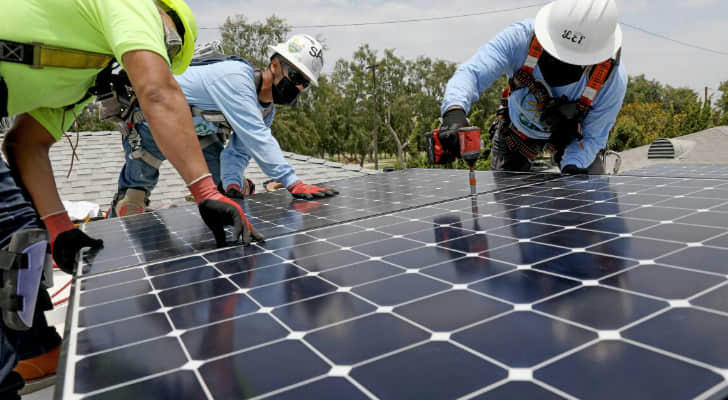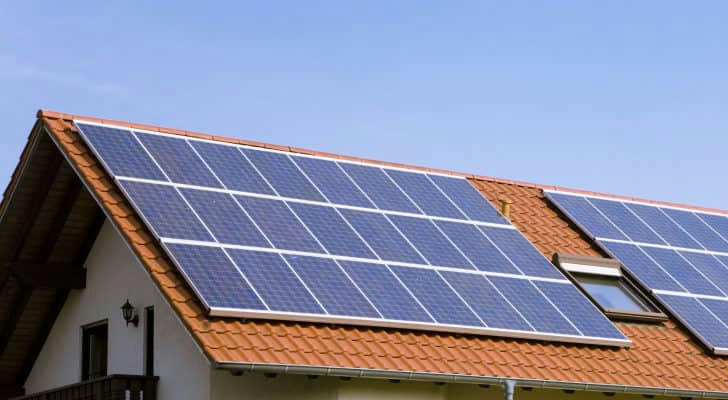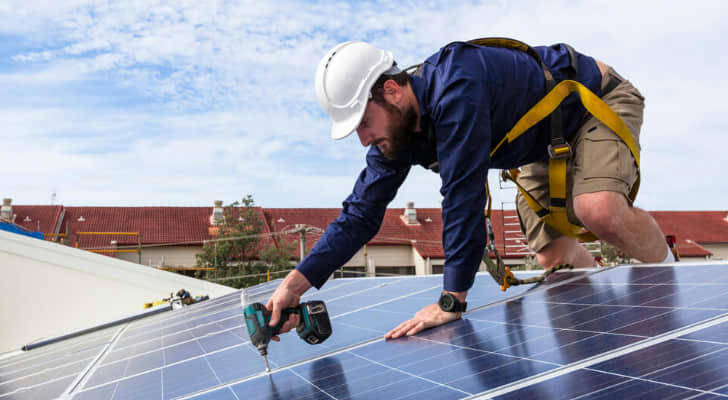Exploring Top Solar Panel Installer Careers in the U.S.

The solar energy sector in the U.S. has experienced remarkable growth recently, fueled by escalating energy costs, environmental concerns, and supportive government policies. This surge in solar energy adoption has resulted in a significant rise in solar panel installer roles nationwide.
If you're looking for a stable, lucrative career with substantial growth potential, solar panel installation could be your ideal path. This guide provides a detailed look into solar panel installer positions, including job responsibilities, salary expectations, necessary skills, industry outlook, and strategies for securing a role in this dynamic field.
Insight into Solar Panel Installer Roles
Solar panel installers handle the setup and installation of photovoltaic (PV) systems, either on rooftops or ground-mounted structures. Their primary responsibilities involve evaluating installation sites, managing electrical components, setting up mounting systems, assembling and wiring panels, addressing system issues, and performing maintenance and repairs. With additional training, installers might also engage in system design, manage compliance documentation, handle permitting processes, and educate customers. Typically, these professionals work full-time, with some irregular hours and outdoor tasks. As the renewable energy sector grows, opportunities for solar panel installers are expanding across the nation.
Solar Panel Installer Earnings

In the US, solar panel installers earn an average annual salary of approximately $46,470, according to data from the U.S. Bureau of Labor Statistics. Entry-level positions start around $30,000, while seasoned professionals can make upwards of $75,000. This field offers a well-paying career without the need for expensive higher education. Additionally, many positions come with performance bonuses, incentives, and extensive benefits. Salaries can differ based on factors such as geographic location, experience level, qualifications, and the size of the employer. The highest salaries are typically found in states like California, New York, New Jersey, Nevada, and Massachusetts.
Essential Skills and Qualifications

Although solar panel installation is largely a hands-on role that requires vocational training, several key skills and qualifications are necessary:
Physical Endurance: Ability to lift heavy panels, climb ladders and roofs, and work in outdoor conditions.
Mechanical and Electrical Knowledge: Skills to assemble equipment and make electrical connections.
Technical Expertise: Understanding of system diagrams, components, and photovoltaic technology.
Attention to Detail: Precision in installation to ensure high-quality work.
Interpersonal Skills: Effective communication with clients and team members.
Adaptability: Ability to handle on-the-job hazards and work in various weather conditions.
Safety Compliance: Adherence to safety procedures and building codes.
Driving and Transportation: A clean driving record and reliable transport for job sites.
Certification from the North American Board of Certified Energy Practitioners (NABCEP) is highly valued as it signifies a standardized level of proficiency. Related educational backgrounds in electronics or electrical trades can be beneficial. Additionally, safety certifications like OSHA 10 are advantageous and can enhance a candidate’s appeal.
Breaking Into the Solar Panel Installation Field
If you're looking to start a career as a solar panel installer, consider these strategies:
Pursue Training: Enroll in specialized solar training programs, vocational courses, or apprenticeships to gain essential skills and credentials such as NABCEP certification.
Showcase Relevant Experience: Include any mechanical or electrical experience from trades, construction, or military service on your resume to highlight your suitability for the role.
Apply for Entry-Level Positions: Look for beginner roles or assistant positions to acquire hands-on training and industry experience.
Search for Opportunities: Explore job listings from local and national solar companies that are hiring installers.
Network Actively: Attend job fairs and industry networking events to meet professionals and make valuable connections in the solar sector.
Gain Experience: Consider volunteer or internship positions to build your resume and gain practical experience.
Start in High-Demand Areas: Be open to working in regions with a high demand for solar installers before considering relocation.
Highlight Key Skills: Emphasize your problem-solving abilities, attention to detail, and passion for renewable energy.
Secure Strong References: Obtain references from past employers that attest to your reliability and work ethic.
Utilize Social Media: Use platforms like LinkedIn to connect with industry professionals and stay informed about job openings.
Show Involvement: Mention any community solar projects or initiatives you've participated in to demonstrate your commitment to the field.
Bright Prospects for Solar Panel Installers
The outlook for solar panel installers is exceptionally promising as the renewable energy sector continues to thrive. Projections by the Solar Foundation indicate a rise of over 50,000 jobs in the solar industry by 2022. The drive towards more sustainable energy solutions, coupled with government tax incentives, plummeting equipment costs, and growing environmental awareness, will boost demand for solar panel installers.
Ambitious initiatives, such as California’s goal of installing 1 million solar roofs, underscore the sector's potential for significant expansion. For those eager to advance, solar panel installation provides not only job security but also exciting growth opportunities. Experienced installers have the chance to transition into roles in supervision, sales, engineering, or management, often with attractive salary packages. Investing in further education in areas such as business, design, and project management can further enhance career prospects and pave the way for professional advancement.
Job Satisfaction in Solar Panel Installation

Industry surveys reveal that solar panel installers report high levels of job satisfaction. Several factors contribute to this positive outlook:
Competitive Pay and Benefits: Solar installers enjoy attractive compensation and benefits, especially when compared to the relatively modest educational requirements.
Low-Stress Work Environment: The job often involves a relaxed work atmosphere with supportive colleagues.
Autonomy and Problem-Solving: Installers have the chance to work independently and tackle unique challenges creatively.
Skill Development: There are numerous opportunities for ongoing learning and professional growth.
Environmental Impact: Many find satisfaction in contributing to a greener planet through renewable energy.
Client Interaction: Engaging with clients and witnessing their enthusiasm for solar technology adds to job fulfillment.
Job Security: The rapidly growing solar industry offers strong job stability and long-term prospects.
For those who value hands-on work, variety, and a meaningful cause, a career in solar panel installation can be both rewarding and satisfying.
Conclusion
Starting a career as a solar panel installer offers an exceptional chance to build a meaningful and enduring profession that delivers both financial and personal rewards. By acquiring the necessary skills, completing relevant training, and demonstrating dedication, newcomers can secure a role in the thriving solar energy sector. This field not only promises a lucrative future but also the satisfaction of contributing to a sustainable planet. Embracing a career in solar installation could lead to a bright and rewarding journey, illuminated by a commitment to renewable energy.
